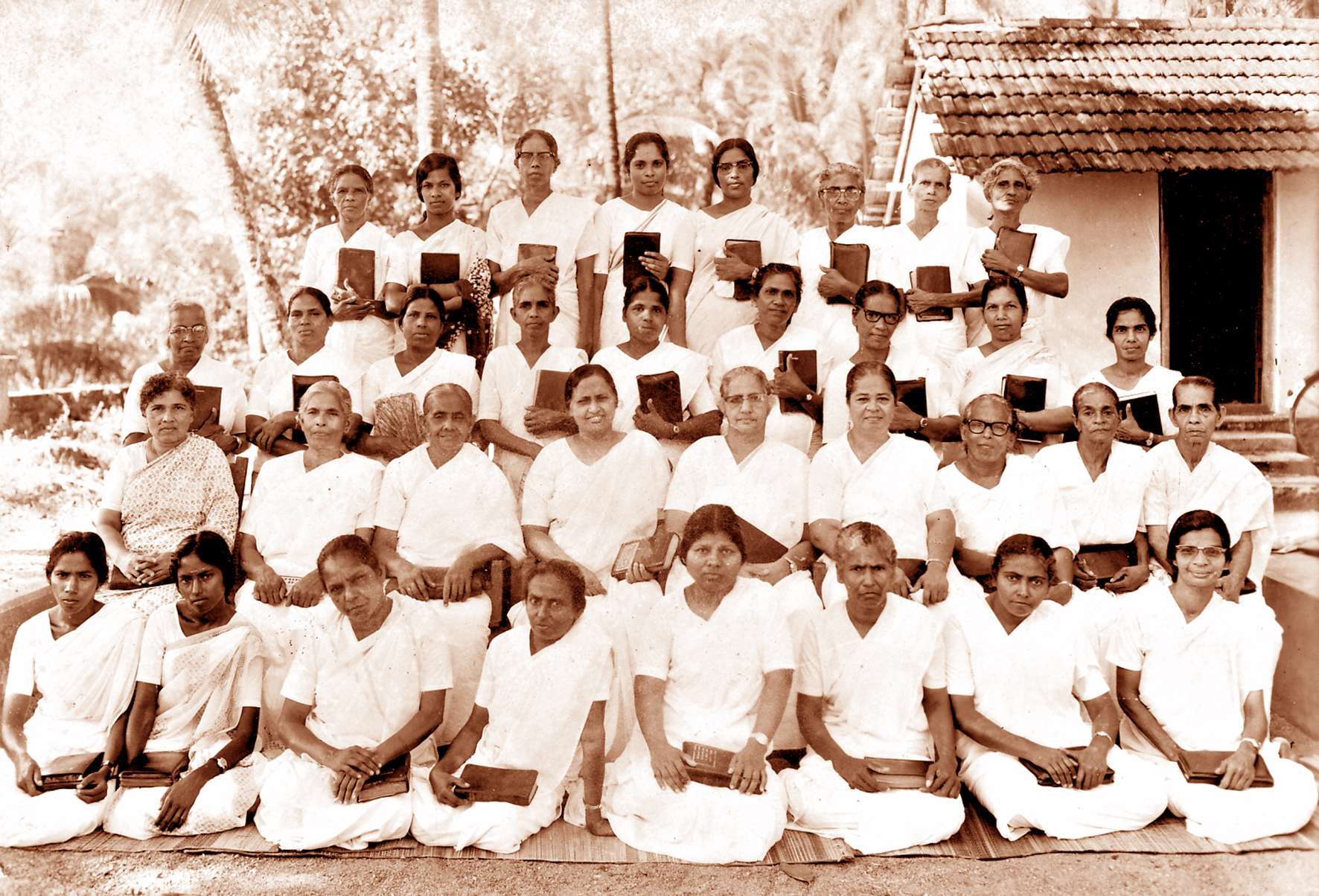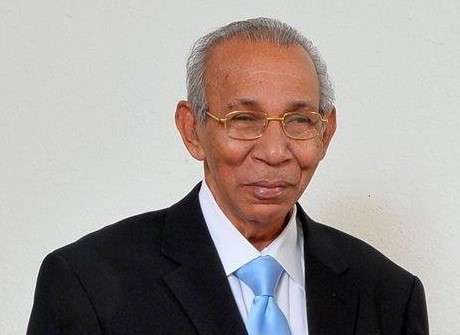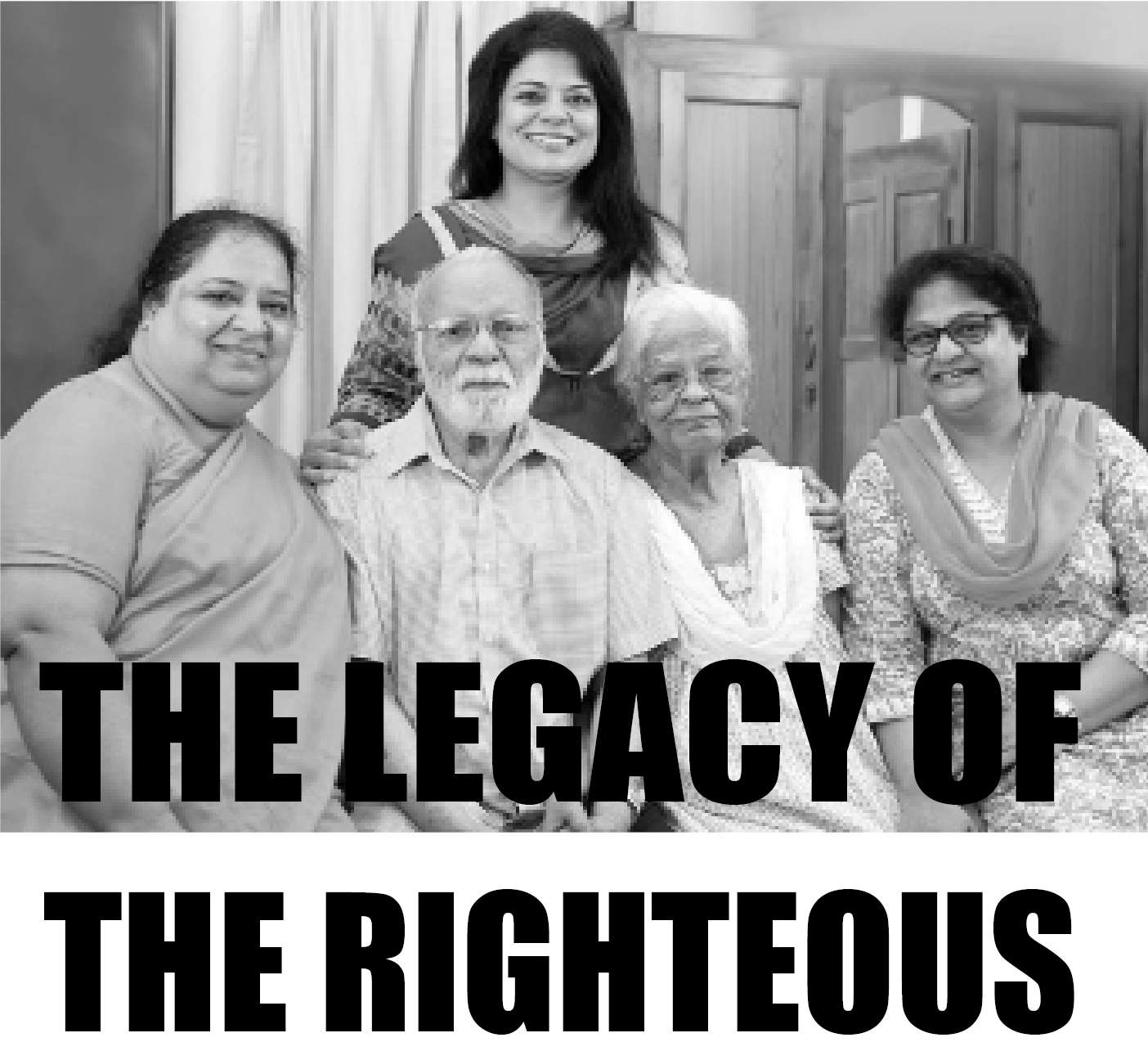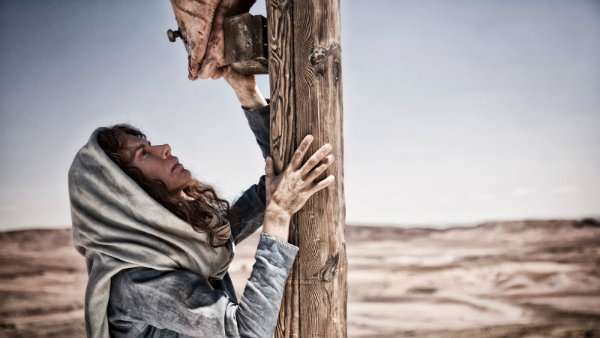

Abigail the Peacemaker
Ms. Starla Luke
“Blessed are the peacemakers, for they will be called children of God.” Matthew 5:9
“Women as torchbearers of peace are making a difference in hot spots of every region of the world. Palestinian and Israeli women have joined forces and work together as advocates for peace. BAT SHALOM is an Israeli national feminist grassroots organization of Jewish and Palestinian Israeli women working together for genuine peace.
In Nepal, women who were victims of violence are seeking representation in peace talks between the government and Maoist rebels. Women’s Peace Caravans venture into the most treacherous conflict-ridden interiors of Colombia to protest against the civil war and negotiate with the guerillas. Throwing themselves into peace processes with enormous courage and determination, women in politics, through their often unseen and unsung work, are bringing peace to many troubled countries.”
Former UN Secretary-General Kofi Annan has pointed out, “Women, who know the price of conflict so well, are also better equipped than men to prevent or resolve it. For generations, women have served as peace educators, both in their families and in their societies. They have proved instrumental in building bridges rather than walls.”
Women bring “soft skills” to the negotiation table, said Orit Adato, a retired lieutenant general in the Israeli Defense Forces. Those traits - “the ability to see the whole picture but at the same time to identify and give your attention to the details,” to contain situations and deal with them, and to balance priorities - are crucial to the peace process.
In the summer of 2010, Samira Hamidi, director of a 5,000-member AFGHAN WOMEN’S NETWORK recalled, at Afghanistan’s national peace jirga, three rockets hit just outside the tent where she and other delegates had gathered for an address by President Hamid Karzai. While many male delegates left to ensure their safety, the women remained on principle.
The Word of God very clearly gives us illustrations of men and women who were so much like us – people who committed mistakes and learned from them. We also see many Bible characters who never ever learned from mistakes! As a lady, I enjoy drawing parallels from Bible women whose lives never fail to teach me lessons for practical living.
Esther - stands out as a woman reflecting grace and beauty; possessing a sincere and teachable spirit, despite the hardship and adversity she faced. She knew to express her mind and heart in such a winsome way that people were drawn to her.
Hannah - suffered infertility, was cruelly treated by Peninnah, misunderstood and even looked down by Eli initially, yet Hannah displays a wise, calm and gentle spirit.
Abigail - Married to a foolish and short- tempered man, who caused embarrassment and danger to their entire household, Abigail’s wisdom, patience and fear of the Lord enabled her to exercise a discerning spirit when her life and that of her entire household was at stake.
What all of these women had in common was their unshakeable faith in the Lord and strong gifts in biblical reconciliation – which certainly includes wisdom to know when to overlook and when to confront, how to be persuasive without losing one’s dignity or respect, and when to remain silent. They were all intelligent and gifted women in their own right, yet none of them ventured to promote their own agendas but were firmly fixed on the Lord’s purposes. Notice that each of them were facing conflicts within family, society or even at the national level! Yet, each of them turned out to become effective reconcilers.
One must not forget that where there is relationship, there will be conflict-guaranteed. And for a Christian woman these challenging times are in reality opportunities to live as peacemakers (to show herself to be a daughter of God), but sadly, many Christian women speak with and relate to others just like unbelievers.
You and I, as women, do not have to be on committees of national or international peacemaking Initiatives. We are called to be peacemakers and reconcilers in our little circles.
Join me as we walk through the life of Abigail to learn how she handled conflicts affecting herself and her household - I Sam.25: 1-42 is a very interesting story of David, Nabal and Abigail. Abigail is introduced as an intelligent and beautiful woman, as opposed to her husband who was mean and surly. It was festival time and customary for sheep shearers to invite and entertain neighbours and friends. A great feast was prepared when flock owners shared their bounty with all who attended – especially the poor and the needy. It was an accepted practice to reward the 'protectors' of these sheep shearers. David and his men played a significant role in safeguarding Nabal's men and flock and it was only expected that they be suitably 'rewarded' for the help and security offered. This ought to have been a voluntary act on Nabal’s part. But even after David reminded Nabal of all the many ways he and his men protected Nabal's servants at Carmel, the insensible, ill-mannered and arrogant Nabal only mocked and ridiculed David and his men. This happened when David and his men were only requesting what was rightfully due to them.
David's wrath knew no bounds when he heard of Nabal’s ludicrous behavior. He ordered his men to go ahead and finish off Nabal and his men. This is where the wise and discerning Abigail comes into play when she acted as both 'reconciler' and 'peace-maker.'
She used all her powers of discernment to bring in a sense of calm into the tense situation.– An ordinary woman would have got all distressed and afraid under such circumstances. Whereas Abigail did not let herself be overcome by the situation. She could have wasted a lot of time being angry with her husband and blaming him or could have even left Nabal for good.
But she was a different woman. She had none to turn to for advice and she had to take a split second decision before going to David. She finally decided to go to David, when he was ready to destroy Nabal and his household. Had she depended on the wisdom of her friends, they'd probably have discouraged her saying that going to David at that point of time was the most foolish thing to do, and that it could result in nothing less than death for her. After all, wasn't David bent on finishing off Nabal and all that belong to him? What better way to start off than to kill Nabal's wife? Abigail did not seek wisdom from others – she trusted in her own discernment and took the bold step. She had good self-control. What would our decision be? Would we rely on our God-given discernment or would we pay heed to the many who will try to counsel us under the guise of wisdom?
Romans 5: I 0 beautifully describes the character of peace as 'a state of mind that is totally reconciled to God.’ In other words, rebellion against God is one major cause for lack of peace. When sin first entered the Garden of Eden, it did not in any way increase the love between Adam and Eve. Instead disharmony was created and Adam shifted the blame on to Eve. Out of that disharmony stemmed envy, jealously, hatred, anger and ultimately even murder in the lives of Cain and Abel.
She adopted an attitude of reconciliation.-Abigail's mind was probably running at a speed faster than David's horses, trying to figure out ways by which she could simultaneously appease David and protect Nabal's life. She went to David and made him realize the folly of his decision in a gentle yet convincing manner. Abigail's obvious desire for peace won over David's impulsive desire for revenge. She averted bloodshed by her bold step and took a split second decision to go forth and fall prostrate before David and plead for her husband's life. As women who love the Lord are we willing to desire such an attitude? Many are the tragic events we can avoid provided we are filled with the spirit of reconciliation. Many problems in families, churches and with others are the direct result of many of us not being willing to reconcile. Is that our attitude today? It does not mean we have to compromise with wrong doing but we surely need to pray that we be filled with a willingness to receive and adopt a spirit of reconciliation. We also need to have love and compassion for the other person. Our motive must be to restore rather than punish (Eph.4: 1-3). She refused to remain a victim, she rose up to become a rebuilder/ restorer of her household. Abigail, rather than punish her husband, wanted to restore him.
She was a dependable woman. – The very fact that her servants came running to her to tell her of her husband's foolishness goes a long way in telling us what kind of a testimony she bore in her household. Her servants ran to her without a second thought. They did not hesitate, for, they were confident that however grave a situation; Abigail would find a way out. They probably had many such experiences in the past – whenever they sought her wisdom and discernment she never let them down. Are we women who draw people to us or do they stay away from us? Do we possess credibility amidst our colleagues? Do others see us as 'dependable'?
She was willing to risk being misunderstood.- The wrong done by her husband haunted her. That did not prevent her from begging forgiveness of David. Abigail humbles herself, prostrates before David and pleads for her belligerent husband's life by taking the blame upon herself. Her interest was not in herself but in others. And for this she was willing to take on any blame and being misunderstood if it saved a situation. She knew enough of Jehovah to warn David. From this it is very evident that she feared and knew God well. She was willing to repent in place of her husband, and she even bore the blame for his wrong doing. Her approach softened David's heart and he forgave her and Nabal. Are we willing to be misunderstood, if necessary, during a process of healing?
She took a gift of reconciliation. -Abigail carried for David and his men 200 loaves of bread, 2 skins of wine, 5 dressed sheep, five seahs of roasted grain, a hundred cakes of raisins and two hundred cakes of pressed figs. She added actions to her words. She was sincere in her plea for forgiveness and she genuinely wanted to make up with David for all the foolishness of Nabal, and so she packed a generous gift for David. She addressed David as "My Lord" thus publicly acknowledging him as the greater – revealing her humility, in total contrast to her husband's demeaning behaviour.
She was a woman of great faith. - She never lost faith that - no matter how bad a situation – David could still be won over. She could have listened to her servant's narration of the whole story and simply said "IMPOSSIBLE!!" and sat down and wept or run to her family seeking help. She did none of that. Instead she rose up, rode her donkey and went to David. I am sure she had her apprehensions but her faith in God and in His chosen child David was so great that she knew she would be given a fair hearing. When we go through "impossible" situations in our life and everything that happens to us seems 'unfair,' do we repose such great faith in our Heavenly Master? Shall we ask our Father in Heaven to grant us the faith that Abigail had in David?
She possessed the gift of honesty and humility.- She spoke the truth to David in love. Abigail showed eagerness to settle differences. She made David realize where he stood and how he should preserve himself before the Lord. She acknowledges and states that David indeed was preserved by the Lord and urges him that he should do no foolish thing that will cause him to shed blood. In other words, she kept David from contaminating his hands. She talked good sense into David. And what is amazing is that David did pay heed to her words! He realized that she was indeed speaking the truth. David understood that she was more concerned about him and his future than her own self. Are we willing to speak the truth even when we do not gain the favor of those around us? Or do we flow with the tide simply because we want to gain easy popularity.- I am certain that members of Abigail's homestead and the people who helped her did not agree with her as she decided to go to David. She however went ahead with her convictions.
Abigail's life teaches us many lessons and an important one is that we ought to cultivate 'peace' in our lives at all times. If we do so, that nature will manifest itself in our character, life, conduct and words. This character formation did not happen overnight in Abigail's life. The attitude we cultivate over a period of time will reveal itself in times of crisis.
As Christian women, all of us have a prominent role to play in our respective communities. We need to be part of a reconciling ministry, be it bringing about peace between people or helping those around us come into a peaceful and right relationship with Christ-,-both are our responsibility. Abigail is the kind of peacemaker God desires each one of us to be. She helped David be at peace with God by risking her own life. It is equally important for us to be able to share with our friends about Jesus, who took our sins upon the cross so that we might be reconciled with God.
May we fulfill our call to be true 'reconcilers' in every sense of the word – particularly to remember that we have been called to spare no cost when it comes to reconciling man with God.











